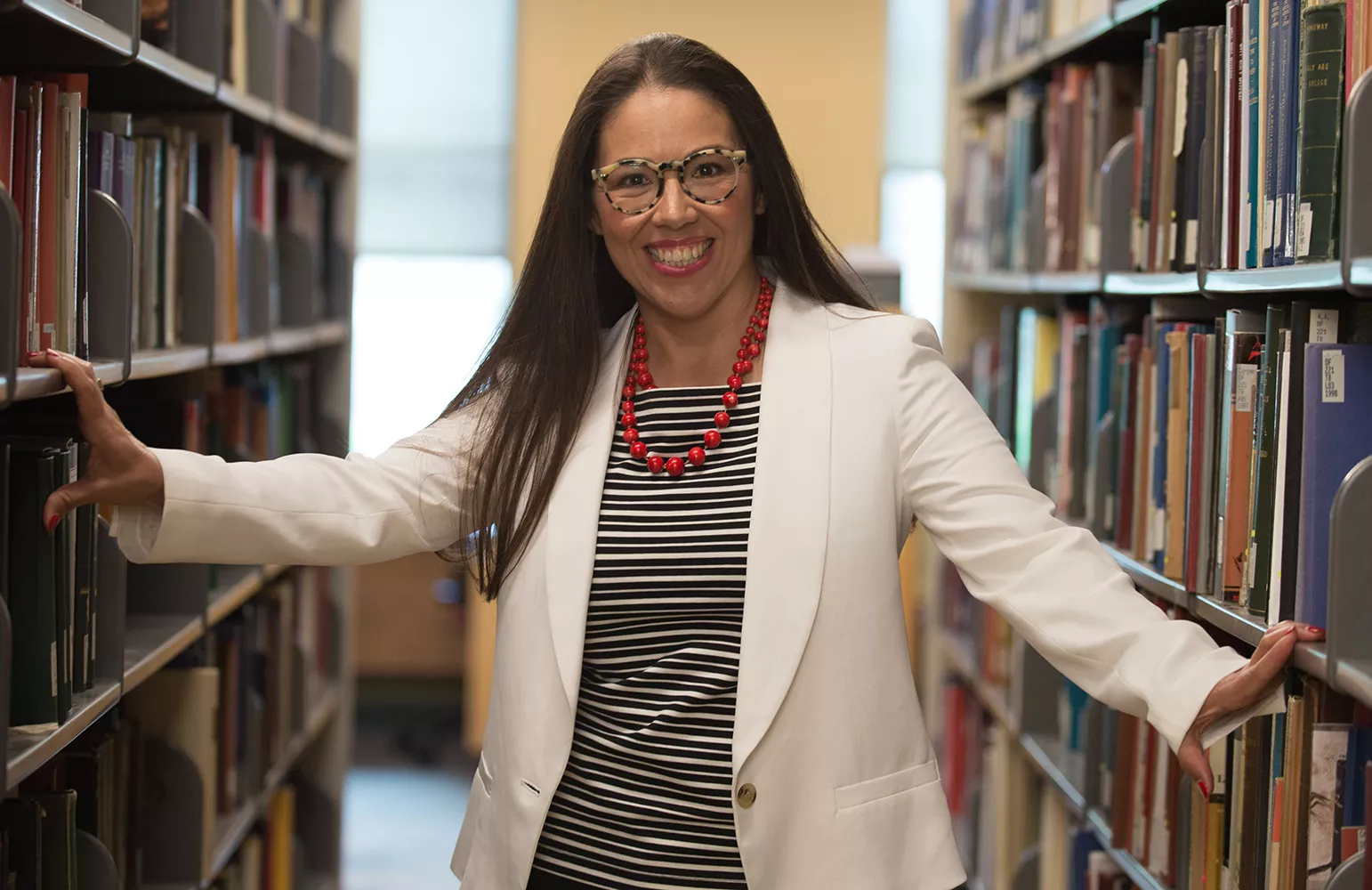
Maribel Garcia '95 was an anthropology major at Bryn Mawr and is now a writer, teacher, and editor.
Maribel recently returned to campus as part of the Career & Civic Engagement Office’s Alumnae/i in Residence program (note: this program is being held virtually for the remainder of the spring 2020 semester).
In the below Q&A, Maribel talks about finding her career passion, the value of attending a women's college, and more.
How did you get involved in your current field?
I trained as a cultural anthropologist (my Ph.D. is in cultural anthropology) and I eventually settled into a tenure-track career job as a women’s studies professor. Life, however, had other plans for me. When they did change and the opportunity to pick a new career path presented itself, I went for the craziest one possible. I thought, what is it that I like to do the most? I love to write. As soon as I figured that out, it was go time. The caveat? Writing is not always a job. It does not pay (yet). I had to find a job that I loved and one that would allow me to have just enough energy at the end of the day for the craft. I was lucky enough to find that. I am a teacher at The Shipley School and it is a job that I absolutely adore. It also gives me the freedom to write. My debut novel, Profound and Perfect Things (She Writes Press, 2019), was published this past spring. And Book Club Babble, a book review site which I co-founded and where I serve as managing editor, always keeps me busy.
What part of your Bryn Mawr experience has been most important to your professional development?
I think that most of the credit goes to BMC’s single-sex environment and here is why. Women's colleges produce strong, self-assured young women who aren't afraid to tackle daunting challenges. Bryn Mawr’s unique approach to education combines academic rigor within a very strong feminist community. The result is an open-minded education where young women receive individual attention. At Bryn Mawr, our professors truly cared about our success. We were taught from day one that our thoughts and opinions mattered. I mean, just look around at many of our influential women in society today…they come from women’s colleges: Hillary Clinton, Zora Neal Hurston, Madeline Albright, Ruth Davis, Alice Walker, Gloria Steinem…the list goes on. By the same token, my feminist education has also helped me embrace a role that we are less likely to see as significant and noble and that is the role of mother. Our generation of women have been programmed to “have it all,” great jobs and great families. This is not always possible and our individual stories can attest to this flawed notion. Integrating motherhood into my identity as a woman has been a big challenge, but my feminist education has empowered me to keep this dialogue open and always up for exploration because we still have a lot of work to do in this department.
What career advice do you have for current Bryn Mawr students?
This may sound a little contrived and trite, but it’s still sound advice: be passionate about what you do. My first formal career was as a professor, the second as a corporate anthropologist, and right now I am enjoying the best one: author and teacher. Passion comes from caring deeply about the work that you do. The day that I no longer feel that what I am doing has any purpose is the day that I will probably find myself being less productive and indifferent to my work.
What made you choose to attend Bryn Mawr?
From the beginning, I feel like Bryn Mawr made me feel special. Like so many Mawrters, and I don’t mean to brag, but I will (because it’s one of the things that my feminist education has taught me; as women we are less inclined to talk about our achievements than men due to a culture that mandates female modesty): like so many other Mawrters, I was in the top of my high school graduating class. Didn’t Bryn Mawr’s freshman class of 2018 have 90 percent of our students in the top 10 percent? Just sayin'. We are bright young women who often have to choose between elite schools, but from the beginning everything about Bryn Mawr’s process made me feel like it was going to be the right fit for me and it was. I am not saying my undergraduate experience was perfect, far from it. My undergraduate experience was one of the hardest four years of my life. That said, I would do it again. I credit my undergraduate experience for making graduate school a breeze and for giving me the kind of career flexibility that I am enjoying now.